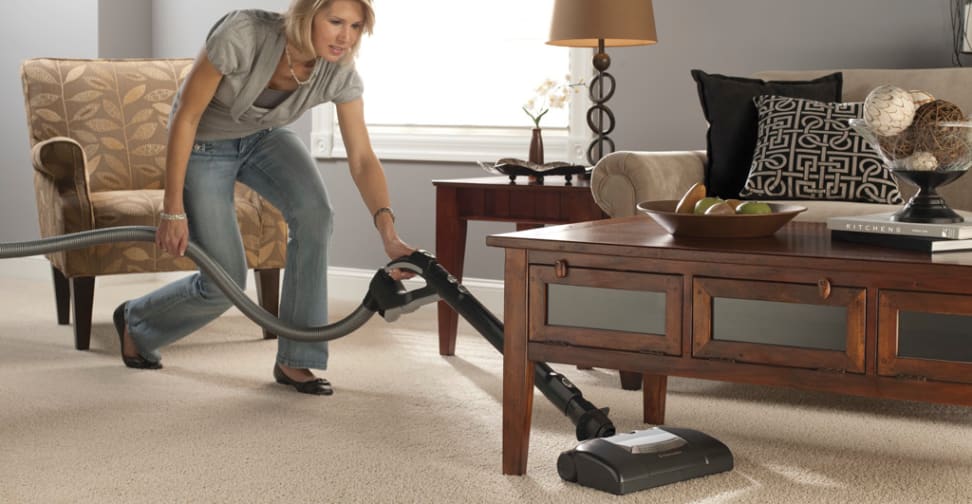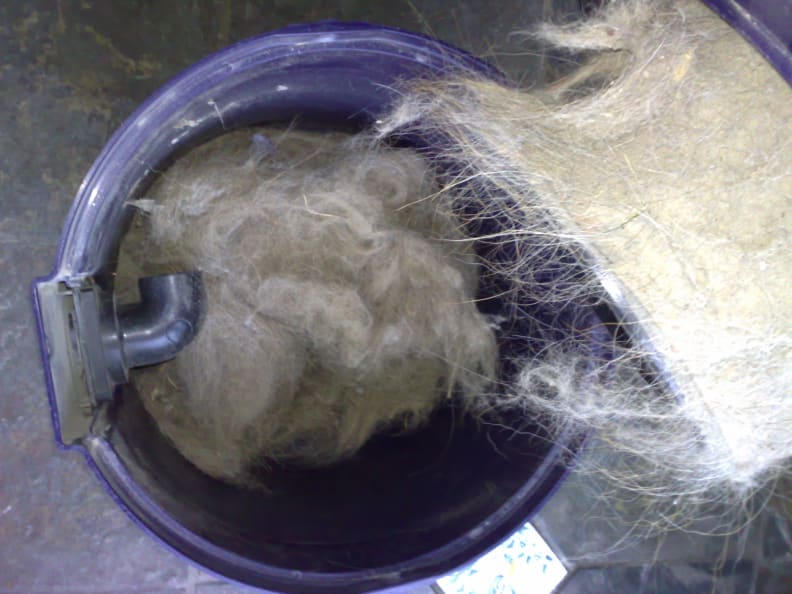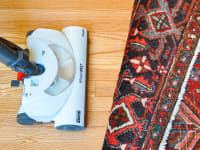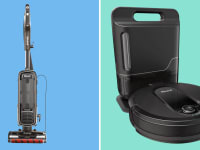 Credit:
Electrolux
Credit:
Electrolux
Products are chosen independently by our editors. Purchases made through our links may earn us a commission.
No one wants to vacuum their house without coming away feeling satisfied that they’ve created a clean, healthy environment. We want to know we’ve successfully ridded the air and carpets of all the dust, pollen, bacteria, and other particulates that plague most homes.
Enter the high-efficiency particulate air filter, better known as a HEPA filter.
Like other government standards, HEPA has become firmly entrenched in our lexicon, used to indicate a higher standard of decontamination. Attached to a vacuum cleaner, HEPA filters capture smaller particulates that might otherwise not be trapped by your vacuum, providing added relief for allergy sufferers and cleaner air for all.
But costing several times the amount of conventional filters, are HEPA filters worth the added expense?
Originally designed in the 1940s to prevent the spread of airborne radioactive contaminants, the HEPA filter soon made its way into commercial—and eventually residential—applications. A true HEPA filter, as defined by the U.S. Department of Energy, removes at least 99.97 percent of airborne particles that are 0.3 micrometers in diameter.
How small is that? The average human hair is about 100 micrometers in diameter. That’s roughly 300 times the size of what a HEPA filter will trap.
“For most allergens, the particles are bigger than 0.3 micrometers,” explains Jeffrey May, air quality consultant and author of My House is Killing Me. “You don’t need a HEPA filter to stop dust mite, and pollen particles, as they are relatively huge. Any good vacuum cleaner should stop cat hair and dander.”

Animal hair will be picked up by conventional vacuums, even without a HEPA filter.
But May says that HEPA filters help contribute to a healthy home environment, even for those without allergies or asthma. A HEPA filter traps most bacteria, pathogens, microbial spores, tracked-in soil particles, combustion soot particles, some construction dust, and some virus particles (that are stuck on larger particles).
“Although the level of filtration is a lot more than most of us need, I think it makes people feel good. And more recently, epidemiological studies are showing that small particles of less than a micron may be causing hypertension.”
{{amazon name="My House Is Killing Me!: The Home Guide for Families with Allergies and Asthma", asin="0801867304", align="right"}}
The Asthma and Allergy Foundation of America (AAFA) has a certification program with guidelines for vacuum cleaners, but the guidelines don’t specifically require HEPA filters.
“We try to create an environment where the manufacturer can be innovative, as long as the product still passes the strict standards adopted by AAFA,” says Alicia Elkin, brand manager for AAFA’s Certification Program.
AAFA currently certifies 33 vacuum cleaners—all from the Dyson, Kenmore and Samsung labels—plus the very expensive Rainbow Cleaning System, which uses a water filtration process.
But New York-based allergist Dr. Clifford Bassett suggests allergy sufferers should not look exclusively to vacuum cleaners with HEPA filters to provide a complete solution for their allergy or asthma issues.
“Things like this work, but a HEPA filter should be part of a comprehensive, overall program,” Dr. Bassett adds. “You want an indoor allergy action plan.”
If a HEPA filter is what you want, the Healthy House Institute says the most important features in a vacuum cleaner are the HEPA filter itself and how it is held in place:
”The filter itself should be made of a pleated, semi-rigid material held in a frame. The frame must be held tightly in place by an airtight gasket. The gasket prevents allergy-laden air from bypassing the filter. Some vacuum cleaners have flimsy, pleated paper filters that look like the material in legitimate HEPA filters; other vacuums have efficient filters in a rigid frame but the filter frame is not held tightly in place, so allergens pass around the filter instead of through it, and escape from the vacuum cleaner. A foam filter is not a HEPA filter.”
When buying vacuum cleaner bags, avoid products advertised as “HEPA-style” or “HEPA-like,” where filtration standards are probably not as rigorous. An “anti-allergen” label is not the same as HEPA.
Jeffrey May says how you vacuum can be just as important as the product you use. Carelessly attacking carpets can result in more dust being sent into the air than is collected by the vacuum cleaner.
“If you’re going to spend the money to buy a HEPA vacuum, you need to vacuum slowly and methodically,” suggests May. “Otherwise you’re wasting your money.”
So, if you keep a tidy house to begin with, a HEPA filter on your vacuum probably won’t make much of a difference as to whether you have a runny nose during pollen season. It’s not going to collect pet hair and dander better than a regular vacuum, nor will it remove odors.
But although a HEPA filter is not a magic bullet by itself, careful vacuuming with a HEPA filter will help catch some of the smaller environmental contaminants we live with. For a cleaner home, they’re worth the added expense. And if you have acute allergies, asthma, COPD or other respiratory conditions, HEPA filters are an important component of a healthier home.


